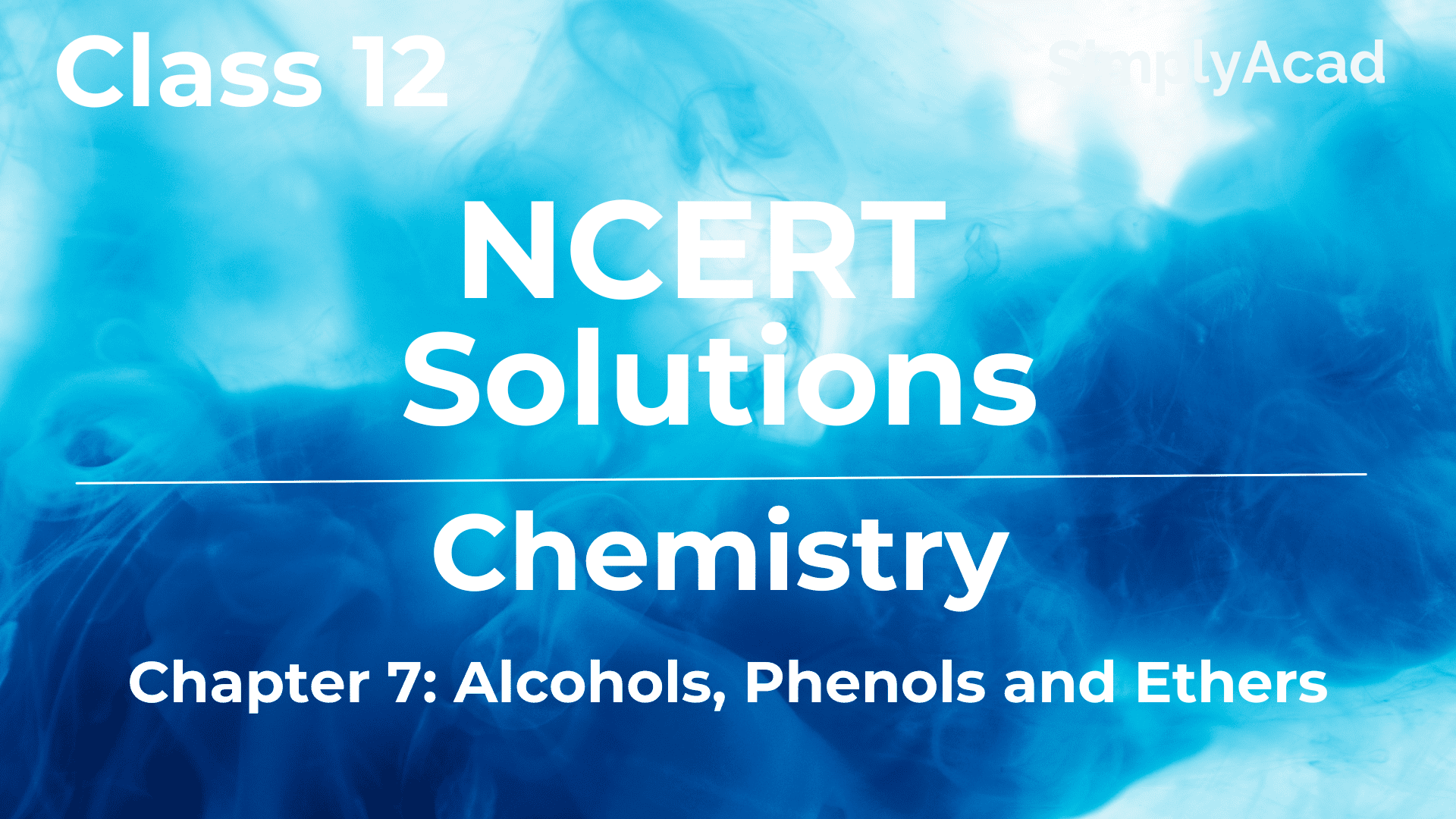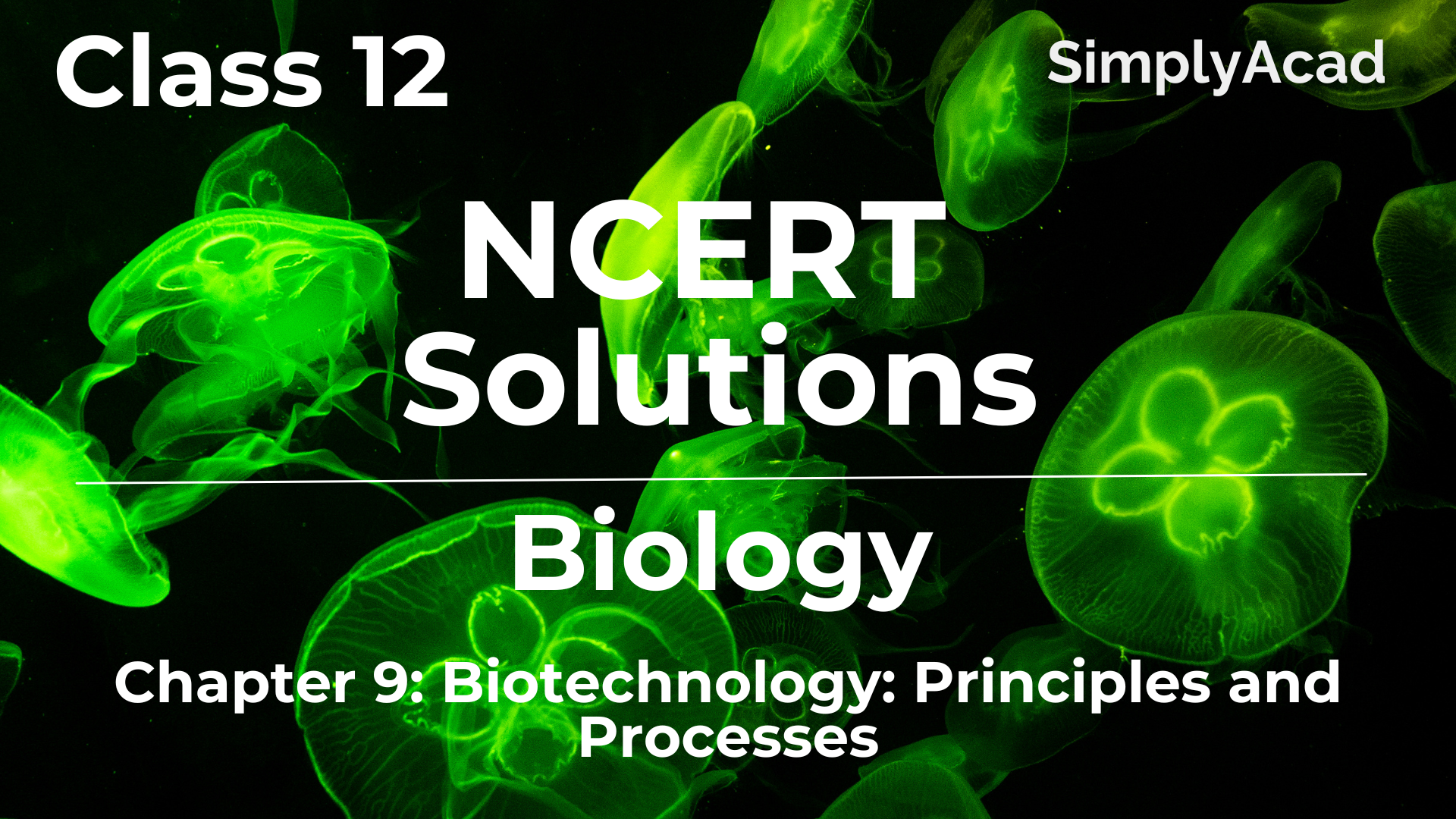NCERT Solutions for Class 12 Maths
SimplyAcad is providing NCERT Solutions for class 12 Maths which discuss various difficult concepts in detail to help you understand them precisely. It covers all the significant methods to build the conceptual base for you to deeply analyze your answers and provides accurate answers. Links of each are provided in the list attached below.
The NCERT Solutions for class 12 Maths acts as a base for your upcoming entrance exams like JEE- Mains & Advance, VITEEE, KITEE, MET, BITSAT, and many more. Remember to revise and practice as much to get the maximum benefits.
NCERT Solutions for Class 12 Maths Chapters 1 to 5
Chapter 1: Relations and Functions
Chapter 1 of the NCERT textbook addresses relations and functions, types of relation, types of functions, the composition of functions and invertible functions, binary operations, and miscellaneous examples.
Chapter 2: Inverse Trigonometric Functions
Chapter 2, Inverse Trigonometric Functions, presents various topics such as the remarks based on basic concepts of inverse trigonometric functions, properties of inverse trigonometric functions, and miscellaneous examples. These concepts are thoughtfully explained through exercises.
Chapter 3: Matrices
In Chapter 3 of the NCERT Class 12 textbook, there is a brief definition of a matrix, its types, equality of matrices, several operations on matrices such as the addition of matrices and multiplication of a matrix by a scalar, properties of matrix addition, elementary operation or transformation of a matrix, properties of scalar multiplication, multiplication of matrices, properties of multiplication of matrices, transpose of a matrix, symmetric and skew-symmetric matrices, the inverse of a matrix by elementary operations, and other miscellaneous examples.
Chapter 4: Determinants
Chapter 4 of Class 12th NCERT Maths Solution covers determinants. Students will learn about the definition and meaning of determinants, properties of determinants, finding the area of a triangle using determinants, remarks based on the order of determinants, minors and cofactors of determinants, inverse of matrix, adjoint of a matrix, applications of determinants and matrices, and other miscellaneous examples.
Chapter 5: Continuity and Differentiability
Chapter 5 of the NCERT textbook presents students with a brief definition of continuity. Learners can upskill about continuity, the definition and meaning of differentiability, algebra of continuous function derivatives of composite functions, derivative of inverse trigonometric functions, exponential and logarithmic functions, derivative of implicit functions, logarithmic differentiation, derivatives of functions in parametric forms, second-order derivatives, mean value theorem through easily understandable examples.
NCERT Solutions for Class 12 Maths Chapters 6 to 10
Chapter 6: Applications of Derivatives
Chapter 6 of the NCERT textbook gives the definition of derivatives, increasing and decreasing functions, rate of change of quantities, tangents and normals, maxima and minima, first derivative test, maximum and minimum values of a function in a closed interval, approximations, and several other examples.
Chapter 7: Integrals
In Chapter 7, Integrals, the definition of indefinite integral, integration as an inverse process of differentiation, properties of indefinite integral, comparison between differentiation and integration, geometrical interpretation of indefinite integral, methods of integration such as integration by substitution, integration using partial fractions, and other examples are provided.
Chapter 8: Applications of Integrals
In Chapter 8, we discuss integrals starting with the definition, area of the region bounded by a curve and a line, area under simple curves, area between two curves, and miscellaneous examples.
Chapter 9: Differential Equations
In this chapter, learners focus on the brief definition of differential equations, basic concepts related to differential equations, formation of a differential equation whose general solution is given, the procedure to form a differential equation that will represent a given family of curves, degree of a differential equation, order of a differential equation, general and particular solutions of a differential equation, methods of solving first order, first-degree differential equations, differential equations with variable separable, homogeneous differential equations, linear differential equations, procedure involved to solve first order linear differential equations, and other examples.
Chapter 10: Vector Algebra
In this chapter, learners get familiarized with vector algebra. The concepts mainly include how to find the position vector, direction cosines, types of vectors such as zero vector, unit vector, collinear vector, equal vector, negative of a vector, addition, multiplication of a vector, various components of a vector, a vector joining two points, different section formula, scalar or dot product of the two vectors, several properties of scalar product, projecting a vector on a line, and vector algebra.
NCERT Solutions for Class 12 Maths Chapters 11 to 13
Chapter 11: Three-Dimensional Geometry
Chapter 11 covers topics associated with three-dimensional geometry, direction cosines and direction ratios of a line, relation between the direction cosines of a line, direction cosines of a line passing through two points, equation of a line passing through two given points, angle between two lines, distance between two skew lines, etc.
Chapter 12: Linear Programming
In this chapter, learners are introduced to linear programming. The concepts and theories covered are linear programming questions and their mathematical formulation, graphical method of solving linear programming, various types of linear programming problems, and other examples.
Chapter 13: Probability
This chapter comprises probability by going through the basic facts. In this chapter, along with the basics, there are other advanced concepts such as conditional probability, multiplication theorem on probability, etc.
NCERT Solutions for Class 12 Maths Exercises
latest video
news via inbox
Nulla turp dis cursus. Integer liberos euismod pretium faucibua




